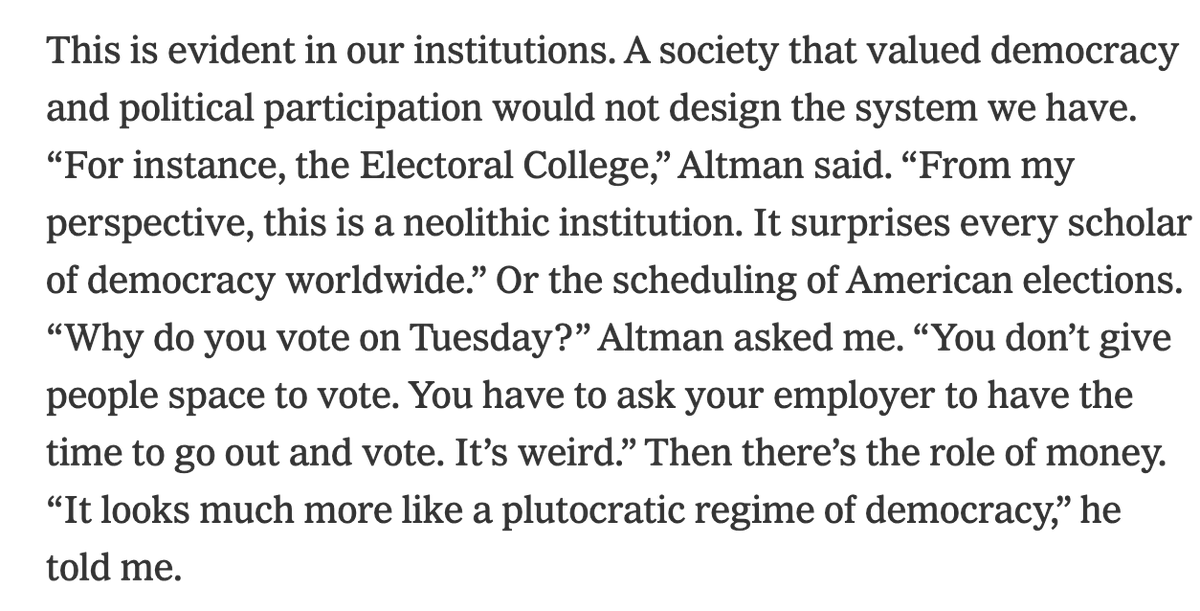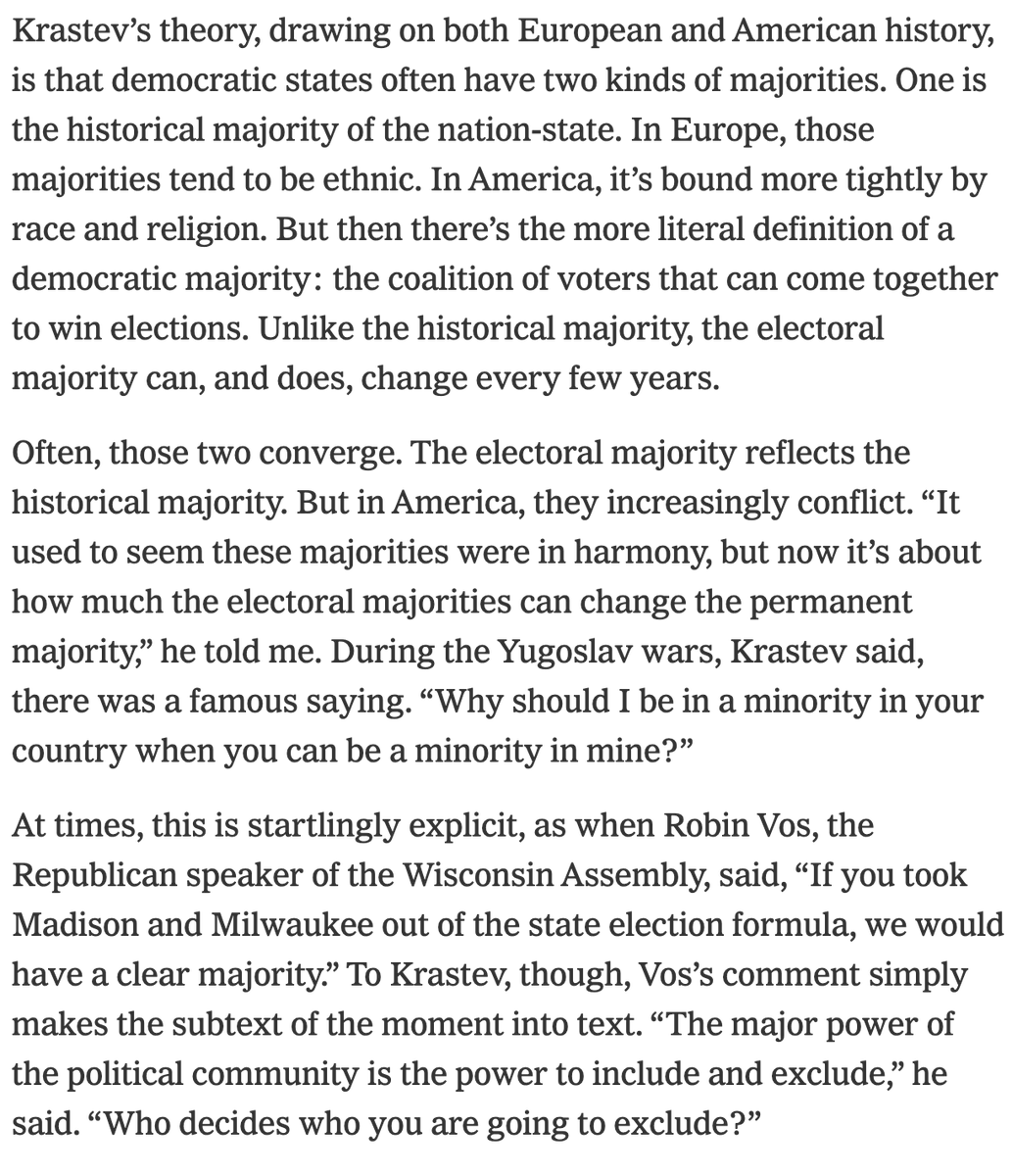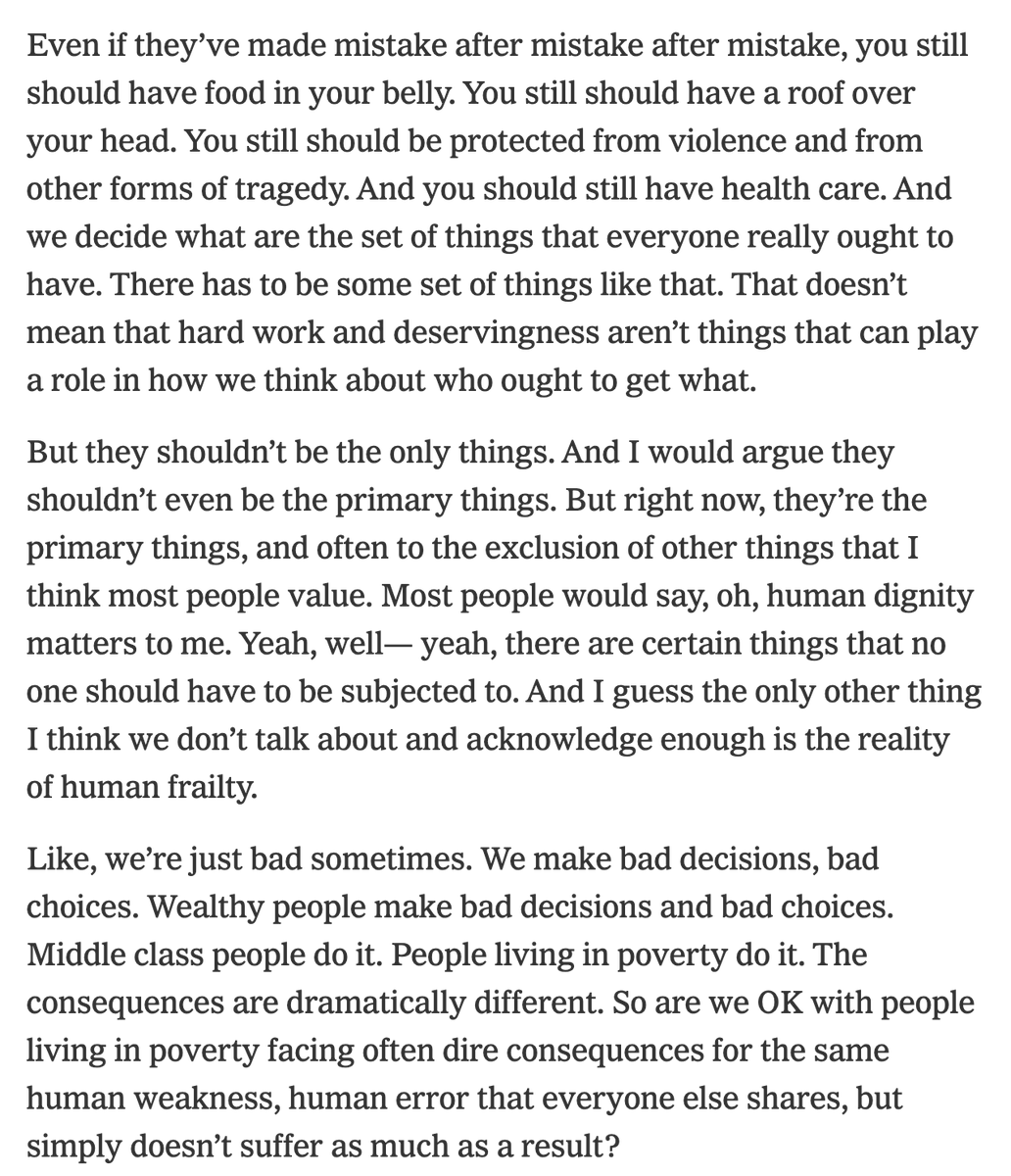
I’ve been listening to @annielowrey think (and rage) about this topic for years, and I’m so glad to see this article come out.
Once you start looking for time taxes, you see them everywhere, and they are a profound failure of both governance and justice. theatlantic.com/politics/archi…
Once you start looking for time taxes, you see them everywhere, and they are a profound failure of both governance and justice. theatlantic.com/politics/archi…
And don't think this is just a problem of Republican governance. Democrats have created more than their fair share of time taxes, and that has, in turn, undermined both their goals and the public's relationship to government. 

Every campaign cycle we are suffused in plans to cut income and corporate taxes. I want to see plans to cut time taxes.
Universalizing benefits can help a lot here. Federalizing Medicaid, if done right, would slash lots of time taxes. But there's a lot you can do administratively, and in states, too. Even if you don't have the votes to fully remake programs, you can improve the ones we have.
• • •
Missing some Tweet in this thread? You can try to
force a refresh


















